Ross Ulbricht
description: American who created and operated the darknet market website Silk Road from 2011 until his arrest in 2013
39 results
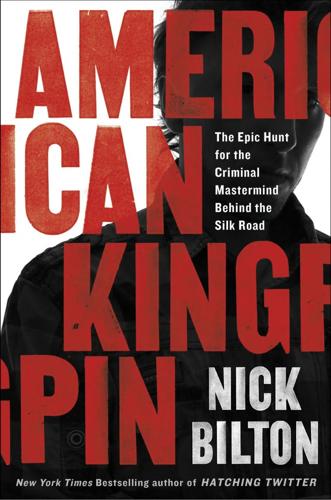
American Kingpin: The Epic Hunt for the Criminal Mastermind Behind the Silk Road
by
Nick Bilton
Published 15 Mar 2017
“What are you talking about?” “It’s him. Ross Ulbricht,” Gary said. “You really think you’re going to find him from a Google search?” Gary’s coworker said. Gary had suspected that Ross Ulbricht might be in some way involved with the Silk Road and had mentioned it to his coworkers months earlier, but the lead had gone nowhere. They couldn’t pursue a case against someone based on the mere fact that they had posted about the Silk Road on the Internet. But after Gary had seen the IP address from a café in San Francisco on the wall at the FBI office, the city where this Ross Ulbricht character apparently lived, he had become convinced that he was at least involved, if not actually the Dread Pirate Roberts.
…
“And then I found a question posted on Stack Overflow, where a user by the name of Ross Ulbricht had asked about coding help with Tor. You know?” Gary said. “And then, a minute after he had posted the question on Stack Overflow, he went in and changed his username from Ross Ulbricht to Frosty, and then—” “What did you say?” Tarbell interrupted, sitting up in his bed. Gary was caught off guard by the question but answered anyway. “Stack Overflow. It’s a site where you can post programming questions—” “No, not that,” Tarbell said, his tone coming across as aggressive. “What did you say after that?” Gary explained that Ross Ulbricht had signed up for an account on Stack Overflow with his real e-mail as his username, but a minute after asking a question on the site, he had changed the username to Frosty.
…
By Monday morning he had come up with a scheme that he hoped his boss would not be able to ignore. He took a deep breath, walked into his supervisor’s office, and sat down. “You got a minute?” he said as he threw the white envelope on the desk. “I have something important I need to show you.” Five Years Earlier Chapter 2 ROSS ULBRICHT Ross, jump off a cliff.” Ross Ulbricht stood there with a slightly dumbfounded look on his face as he peered over the edge of the bluff. Below him, Austin’s Pace Bend Lake curled into and around itself, leaving a forty-five-foot drop into the frigid water below. “What?” Ross said with a goofy smile as he lifted his hands and pointed to his wide chest.
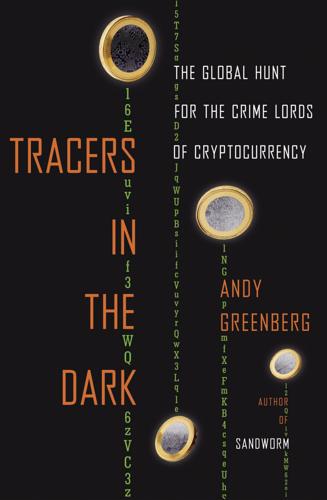
Tracers in the Dark: The Global Hunt for the Crime Lords of Cryptocurrency
by
Andy Greenberg
Published 15 Nov 2022
Just months earlier, the FBI, IRS, and DHS had finally, after a two-and-a-half-year hunt, identified the site’s founder as a twenty-nine-year-old Texan with no criminal record, a man by the name of Ross Ulbricht. Agents had swarmed into the science fiction section of a San Francisco library, arrested Ulbricht where he sat running his vast drug empire, grabbed his laptop, and shut down the Silk Road for good. Stories of the landmark dark web case still reverberated through the law enforcement community. Gambaryan, based in the IRS’s Oakland office—just a few miles away, it turned out, from Ross Ulbricht’s home—had been asked only to interview a few witnesses in the aftermath of Ulbricht’s arrest.
…
I rode an elevator to the fifteenth floor and stepped into a stately courtroom with a view of the Brooklyn Bridge out the window behind the judge’s bench. A few minutes later, a slim, square-jawed thirty-year-old entered that courtroom, accompanied by his team of lawyers. Ross Ulbricht, wearing a gray suit, looked over the crowded gallery and flashed a smile to his mother. His trial was about to begin. In the defense’s opening statement, Ulbricht’s lead attorney, Joshua Dratel, began with a shocking admission: Yes, Ross Ulbricht had created the Silk Road. But then Dratel, a renowned national security lawyer, launched into the rest of the defense’s version of events: The young, idealistic Ulbricht had intended his marketplace to be only a kind of harmless “economic experiment.”
…
Just a year after Silk Road 2 appeared, in November 2014, the FBI and Europol had launched a major takedown known as Operation Onymous, exploiting a rare security vulnerability in Tor—and likely intelligence gleaned from Ross Ulbricht’s laptop about Silk Road moderators who had joined Silk Road 2—to arrest several of Silk Road 2’s staff and rip half a dozen of the marketplaces off-line. After that culling of the dark web market herd, however, another site had risen to prominence, this one called Evolution. It sold not only drugs but the sort of hacked data and stolen credit card numbers that Ross Ulbricht had deemed too unethical to allow on his site. When Evolution’s administrators disappeared in March 2015, absconding with the millions of dollars held in users’ escrow accounts, another market called Agora simply absorbed its users and took over the top spot in the dark web’s criminal economy.
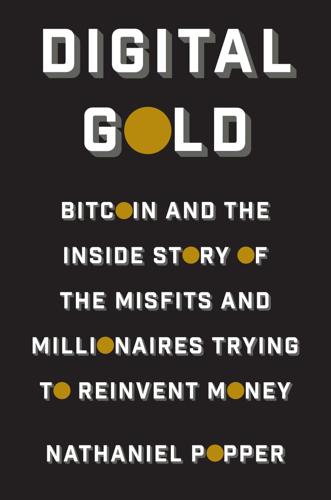
Digital Gold: Bitcoin and the Inside Story of the Misfits and Millionaires Trying to Reinvent Money
by
Nathaniel Popper
Published 18 May 2015
The other is at http://www.gwern.net/Silk%20Road. Many of the details in the book came from the Silk Road’s forums and Ross Ulbricht’s trial, which will be referred to in the notes by the following abbreviations: SRF: Silk Road forum archives, http://antilop.cc/sr/download/stexo_sr_forum.zip. RUTT: Ross Ulbricht trial transcripts, United States of America v. Ross William Ulbricht. United States District Court Southern District of New York. 14 CR 68 (KBF). RUTE: Ross Ulbricht trial exhibits, United States of America v. Ross William Ulbricht. United States District Court Southern District of New York. 14 CR 68 (KBF).
…
CHAPTER 22 218federal prosecutors arrested the operators of Liberty Reserve: Information on the arrest is available at http://www.justice.gov/usao/nys/press releases/May13/LibertyReservePR.php. 218the top financial regulator in California sent the Bitcoin Foundation: The letter was posted by the executive director of the foundation at http://www.forbes.com/sites/jonmatonis/2013/06/23/bitcoin-foundation-receives-cease-and-desist-order-from-california/. 224announced a few days after Charlie shut down BitInstant: Erik Voorhees to BTCF, July 17, 2013. 225one-millionth registered account: Eileen Ormsby, Silk Road (Sydney: Pan Macmillan Australia, 2014). 225commissions collected by the site often approached over $10,000 a day: RUTE GX 250. 225Ross agreed to pay $100,000 up front: RUTE GX 241. 226“Don’t want to be a pain here”: Sealed complaint against Ross Ulbricht filed by FBI Special Agent Christopher Tarbell, September 27, 2013. 226paid for with 3,000 Bitcoins, or roughly $500,000: Letter opposing Ross Ulbricht’s release on bail, filed by Assistant United States Attorney Serrin Turner, November 20, 2013. These alleged murders and the chats between Ross and redandwhite were discussed during Ross Ulbricht’s trial, but Ross was not charged with any counts of murder for hire and Canadian police never found any evidence of any suspicious deaths during this time that might be tied to Ross. 227He moved out of his friend’s apartment in June: Sealed complaint against Ross Ulbricht filed by FBI Special Agent Christopher Tarbell, September 27, 2013. 227“encrypt and backup important files”: Letter opposing Ross Ulbricht’s release on bail, filed by Assistant United States Attorney Serrin Turner, November 20, 2013. 228“Without going into details, the stress of being”: Dread Pirate Roberts to Silk Road forum, September 20, 2013. 228Ross assigned Variety Jones: RUTE GX 241. 228When agents knocked on the door: Sealed complaint against Ross Ulbricht filed by FBI Special Agent Christopher Tarbell, September 27, 2013. 229Ross changed apartments: Thomas Kiernan, RUTT, January 22, 2013.
…
These alleged murders and the chats between Ross and redandwhite were discussed during Ross Ulbricht’s trial, but Ross was not charged with any counts of murder for hire and Canadian police never found any evidence of any suspicious deaths during this time that might be tied to Ross. 227He moved out of his friend’s apartment in June: Sealed complaint against Ross Ulbricht filed by FBI Special Agent Christopher Tarbell, September 27, 2013. 227“encrypt and backup important files”: Letter opposing Ross Ulbricht’s release on bail, filed by Assistant United States Attorney Serrin Turner, November 20, 2013. 228“Without going into details, the stress of being”: Dread Pirate Roberts to Silk Road forum, September 20, 2013. 228Ross assigned Variety Jones: RUTE GX 241. 228When agents knocked on the door: Sealed complaint against Ross Ulbricht filed by FBI Special Agent Christopher Tarbell, September 27, 2013. 229Ross changed apartments: Thomas Kiernan, RUTT, January 22, 2013.
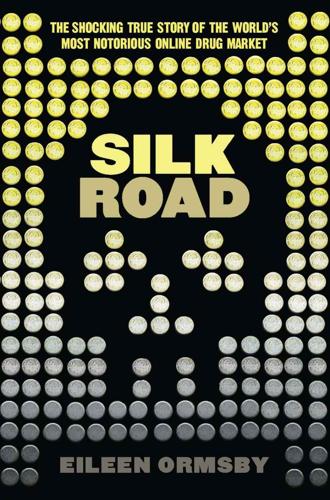
Silk Road
by
Eileen Ormsby
Published 1 Nov 2014
The authorities chasing him could make a thousand mistakes but he only had to make one tiny slip up and it could be his downfall. I am really interested to see what happens next! Interests: trading, economics, physics, virtual worlds, liberty. – Ross Ulbricht’s LinkedIn profile Meet Ross Ulbricht At his bail hearing in November 2013, Ross Ulbricht’s lawyers submitted a total of sixty-three letters from family, friends and others attesting to his character and integrity. They described his reputation for charity and generosity and praised his gentle and peace-loving nature. Bail was denied, however, when the authorities countered with four more murder-for-hire charges to add to the two that had already been laid.
…
They had also noted a March 2013 question on technical website Stack Overflow about connecting to a hidden Tor site using computer language Curl, suggesting someone who was programming a hidden site. A minute after posting the question the user changed their name from ‘Ross Ulbricht’ to ‘frosty’. And they’d had undercover agents on the inside for over a year. Ulbricht, who had an advanced degree in chemical engineering and who had allegedly developed a cult-like following among the Silk Road users as Dread Pirate Roberts, a supposed criminal mastermind, was apparently caught in a public place logged into every incriminating site he had access to. This was the same Ross Ulbricht who had been visited by Homeland Security in July 2013 in relation to the package containing multiple counterfeit identification documents all bearing his photo.
…
To that end, I am creating an economic simulation to give people a first-hand experience of what it would be like to live in a world without the systemic use of force. – Ross Ulbricht’s LinkedIn profile An administrator of the Silk Road website, Curtis Green, a/k/a ‘Flush’, and ‘chronicpain’, age 47, of Utah, pleaded guilty today to conspiracy to distribute and possess with attempt to distribute cocaine. … According to his plea agreement, beginning in November 2012, Green worked for the creator and operator of Silk Road, Ross Ulbricht, whom Green only knew by his alias, ‘Dread Pirate Roberts.’ Silk Road was an online, international marketplace that allowed users to anonymously buy and sell illegal drugs, false identifications, and other contraband over the internet.
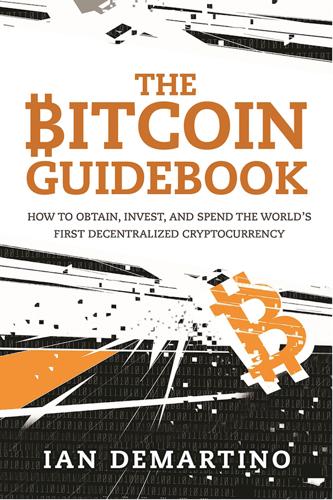
The Bitcoin Guidebook: How to Obtain, Invest, and Spend the World's First Decentralized Cryptocurrency
by
Ian Demartino
Published 2 Feb 2016
Accessed November 12, 2015. http://www.reuters.com/article/us-usa-security-nsa-rsa-idUSBREA2U0TY20140331. 7 Deep Web. Directed by Alex Winter. Performed by Cindy Cohn, Andy Greenberg. Epix, 2015. VoD. 8 “Ross Ulbricht, aka Dread Pirate Roberts, Sentenced in Manhattan Federal Court to Life in Prison.” FBI. May 29, 2015. Accessed June 22, 2015. https://www.fbi.gov/newyork/press-releases/2015/ross-ulbricht-aka-dread-pirate-roberts-sentenced-in-manhattan-federal-court-to-life-in-prison. 9 Kelion, Leo. “NSA and GCHQ Agents ‘leak Tor Bugs’, Alleges Developer - BBC News.” BBC News. August 22, 2014. Accessed June 22, 2015. http://www.bbc.com/news/technology-28886462. 10 “Schumer Pushes to Shut Down Online Drug Marketplace.”
…
Satoshi Nakamoto: The anonymous creator of Bitcoin, suspected to be one person or several people. Dread Pirate Roberts: The leader of the infamous Silk Road underground marketplace. May be a group of people or a name passed from person to person. Amir Taaki: Dark Wallet co-creator and lead developer of Darkmarket, later forked to Open Bazaar. Peter Todd: Bitcoin core developer. Ross Ulbricht: Was accused and convicted of being Dread Pirate Roberts; his case is under appeal. Roger Ver: Angel investor and Bitcoin evangelist; CEO of Memorydealers.com, one of the first sites to accept Bitcoin, and founder of the company Blockchain. Cody Wilson: Dark Wallet co-creator and 3D-printed gun designer.
…
They managed to track down a seller with the username Chronicpain; they seized his and other sellers’ accounts but didn’t arrest the owners of those accounts. From there, they managed to communicate with Dread Pirate Roberts and implicate him in a large number of crimes. The crime that got the most media attention and was used to deny Ross Ulbricht bail was the alleged ordering of three murders. According to the government’s accounts, Dread Pirate Roberts ordered three hits: one in retaliation for a theft, one on a former vendor turned witness, and one on a blackmailer. The total murder-for-hire count was eventually raised to six, and Ulbricht was deemed a “threat to society” and denied bail.
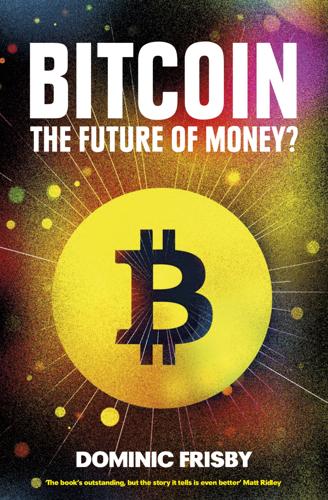
Bitcoin: The Future of Money?
by
Dominic Frisby
Published 1 Nov 2014
How a Computer Nerd became the FBI’s Most Wanted Drug Dealer 54 David Kushner, ‘Dead End on Silk Road: Internet Crime Kingpin Ross Ulbricht’s Big Fall,’ Rolling Stone, February 4, 2014, accessed March 1, 2014, http://rol.st/1tHFaGu. 55 Patrick Howell O’Neill, ‘How big is the Internet’s most notorious black market?,’ The Daily Dot, July 30, 2013, accessed May 14, 2014, http://bit.ly/1tHF8ON. 56 Fran Berkman, ‘Alleged Silk Road Mastermind Was a Dirty Hippie, Best Friend Says,’ Mashable, November 4, 2013, accessed March 1, 2014, http://on.mash.to/1tHF8y5. 57 Ibid. 58 Ross Ulbricht, ‘Thoughts on Freedom,’ July 6, 2010, accessed March 1, 2014, http://on.fb.me/1trBch6. 59 Adam Taylor, ‘Alleged Founder Of Silk Road Posted LinkedIn Manifesto About Using Economic Theory To Change The World,’ Business Insider, October 2, 2013, accessed March 1, 2014, http://read.bi/1tHFbds. 60 Fran Berkman, ‘Alleged Silk Road Mastermind Was a Dirty Hippie, Best Friend Says,’ Mashable, November 4, 2013, accessed March 1, 2014, http://on.mash.to/1tHF8y5. 61 ‘Anonymous market online?
…
Poking their heads round the shelves, they saw him being pressed up against the window and handcuffed. He was, the FBI said, the Dread Pirate Roberts, reported to own over $30 million worth of bitcoins, to earn about $20,000 a day and to have amassed an $80 million fortune in 18 months. But he was in the Glen Park Library for the free wifi. The man they arrested was Ross Ulbricht, a 29-year-old from Austin, Texas. He is hardly the millionaire kingpin of the Hollywood variety. Rather, he’s a handsome nerd, a former physics student, living in a sub-let San Francisco room for $1,200 a month, for whom, according to an old college buddy, ‘bathing is optional’.56 ‘He’s a hippie.
…
The attempted murder charges relating to Redandwhite have been dropped, presumably because it is obvious Ulbricht was being scammed. But the Curtis Green charges are still live, as are charges of large-scale criminal enterprise, drug trafficking, hacking and money laundering. Ulbricht has pleaded not guilty. A campaign has begun to help him raise the money to fight his case, Free Ross Ulbricht – freeross.org. Why Bitcoin will end the war on drugs The FBI congratulated themselves. Over a year’s work and they had got their man. It was a great victory. The bitcoin price fell from $140 to $110 in just a few hours. The Silk Road had been busted. FBI agent Christopher Tarbell was hailed as the ‘Elliott Ness of cyberspace’.70 Many libertarians saw it as a loss.
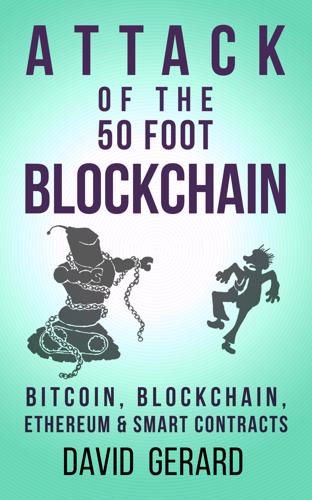
Attack of the 50 Foot Blockchain: Bitcoin, Blockchain, Ethereum & Smart Contracts
by
David Gerard
Published 23 Jul 2017
Bitcoin’s cryptography is solid, but it’s a bit like putting a six inch thick steel vault door in a cardboard frame. Anonymous! Bitcoin was widely touted early on as anonymous – on the blockchain, nobody knows you’re a dog. Of course, with every confirmed transaction logged in the blockchain forever, it’s pseudonymous at best; as the case of Ross Ulbricht and the Silk Road showed (see Chapter 4), law enforcement will happily do the tedious legwork of tracing your transactions if you motivate them sufficiently. There are ways to increase your anonymity, such as mixers – send coins to an address, they shuffle them with other people’s coins, and you get them back later minus a percentage.
…
Karpelès is still dealing with the Japanese authorities, including being arrested for embezzlement in August 2015 and held in custody for several months, with his trial starting in July 2017 (though he maintains his innocence). McCaleb went on to develop the cryptocurrencies Ripple and Stellar; his LinkedIn page107 details his career back to eDonkey, but chooses to omit Mt. Gox. Drugs and the Darknet: The Silk Road Both Anne Frank, and Ross Ulbricht created dark markets to help people hide from violent oppressors who were trying to hurt peaceful people. – Roger Ver108 Anonymous or pseudonymous cryptocurrency has one obvious application: paying for things you’d rather not be caught buying or selling. Drug users take to new communication channels as soon as they’re invented; the first known e-commerce was the sale of marijuana between Stanford and MIT students over email in 1971 or 1972.109 Nakamoto noted in September 2010:110 Bitcoin would be convenient for people who don’t have a credit card or don’t want to use the cards they have, either don’t want the spouse to see it on the bill or don’t trust giving their number to “porn guys”, or afraid of recurring billing.
…
Drug users take to new communication channels as soon as they’re invented; the first known e-commerce was the sale of marijuana between Stanford and MIT students over email in 1971 or 1972.109 Nakamoto noted in September 2010:110 Bitcoin would be convenient for people who don’t have a credit card or don’t want to use the cards they have, either don’t want the spouse to see it on the bill or don’t trust giving their number to “porn guys”, or afraid of recurring billing. Ross Ulbricht grew up in Austin, Texas, born to a well-off family. He was an Eagle Scout; friends and acquaintances were widely impressed by what a polite, helpful young man he was. He studied physics and materials science at college. At Penn State, he took up with the College Libertarians group, and was an activist in support of Ron Paul’s 2008 presidential bid.
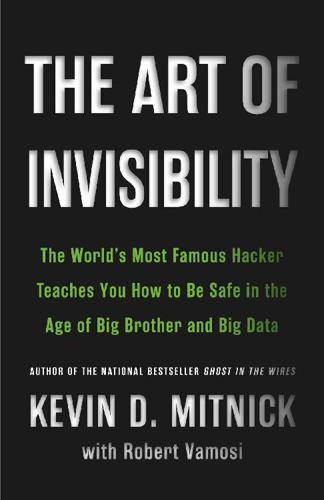
The Art of Invisibility: The World's Most Famous Hacker Teaches You How to Be Safe in the Age of Big Brother and Big Data
by
Kevin Mitnick
,
Mikko Hypponen
and
Robert Vamosi
Published 14 Feb 2017
From this point on, the Tor browser should always be used to create and access all online accounts because it constantly changes your IP address. One of the first steps is to set up a couple of anonymous e-mail accounts using Tor. This was something that Ross Ulbricht neglected to do. As we saw in the previous chapter, he used his personal e-mail account more than once while conducting his Silk Road business on the Dark Web. These unintentional crossovers from Dread Pirate Roberts to Ross Ulbricht and back again helped investigators confirm that the two names were associated with one person. To prevent abuse, most e-mail providers—such as Gmail, Hotmail, Outlook, and Yahoo—require mobile phone verification.
…
CHAPTER FIFTEEN The FBI Always Gets Its Man In the science fiction section of the Glen Park branch of the San Francisco Public Library, not far from his apartment, Ross William Ulbricht was engaged in an online customer-support chat for the company he owned. At the time—October of 2013—the person on the other end of the Internet chat thought he was talking to the site’s admin, who went by the Internet name of Dread Pirate Roberts, a name taken from the movie The Princess Bride. Roberts, also known as DPR, was in fact Ross Ulbricht—not only the admin but also the owner of Silk Road, an online drug emporium, and as such was the subject of a federal manhunt.1 Ulbricht frequently used public Wi-Fi locations such as the library for his work, perhaps under the mistaken impression that the FBI, should it ever identify him as DPR, would never conduct a raid in a public place.
…
ProxyHam is a very remote access point. Using it is much like putting a Wi-Fi transmitter in your home or office. Except that the person using and controlling ProxyHam could be up to a mile away. The Wi-Fi transmitter uses a 900 MHz radio to connect to an antenna dongle on a computer as far as 2.5 miles away. So in the case of Ross Ulbricht, the FBI could have been amassing outside the Glen Park library while he was in someone’s basement doing laundry several blocks away. The need for such devices is clear if you live in an oppressed country. Contacting the outside world through Tor is a risk many take. This kind of device would add another layer of security by masking the geolocation of the requester.
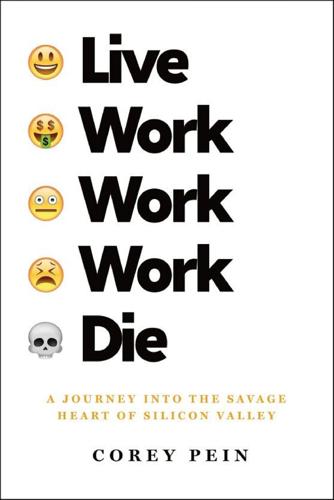
Live Work Work Work Die: A Journey Into the Savage Heart of Silicon Valley
by
Corey Pein
Published 23 Apr 2018
The Zuckerberg-backed group Joshio Meronek, “Mark Zuckerberg’s Immigration Hustle,” March 12, 2015, fusion.net; Matt Smith, Jennifer Gollan, and Adithya Sambamurthy, “Job Brokers Steal Wages, Entrap Indian Tech Workers in US,” October 27, 2014, revealnews.org. Ross Ulbricht Benjamin Weiser, “Ross Ulbricht, Creator of Silk Road Website, Is Sentenced to Life in Prison,” May 29, 2015, nytimes.com; Joe Mullin, “Sunk: How Ross Ulbricht Ended Up in Prison for Life,” May 29, 2015, arstechnica.com; US v. Carl Mark Force IV et al., March 25, 2015, US District Court, Northern California Circuit, Case No. 3-15-70370. Blake Benthall Evan Sernoffsky, Henry K.
…
one curious Weekender interjected. “That’s right!” I said. People got it. Mercenary attitudes were so common in Silicon Valley that no one lectured me about propriety. People mainly wanted to know how I intended to get away with a patently unlawful conspiracy. This was a reasonable concern. One of my inspirations, Ross Ulbricht, was sentenced to life in prison for operating an illegal drug market called Silk Road. Accessible only through the Pentagon-funded Tor network—also known as the Dark Web—Silk Road allegedly processed more than one million transactions comprising $1.2 billion in revenue over two years. Ulbricht, a former Eagle Scout, was just about my age.
…
Nick Land “Premises of Neoreaction,” February 3, 2014, xenosystems.net. Yarvin claimed to have watched Joseph Bernstein, “Alt-White,” October 5, 2017, buzzfeed.com. For its targets, Gamergate My interviews with Zoe Quinn and Randi Lee Harper; “Game of Fear,” May 2015, Boston Magazine. Katherine Bolan Forrest Yannick Losbar, “Ross Ulbricht Silk Road Trial Judge Facing Death Threats on Dark Net,” October 20, 2014, cryptocoinsnews.com; Rich Calder, “Judge in Silk Road Case Gets Death Threats,” October 24, 2014, nypost.com. His name became more familiar J. Lester Feder, “This Is How Steve Bannon Sees the Entire World,” November 15, 2016, buzzfeed.com; Jason Horowitz, “Steve Bannon Cited Italian Thinker Who Inspired Fascists,” February 10, 2017, nytimes.com.
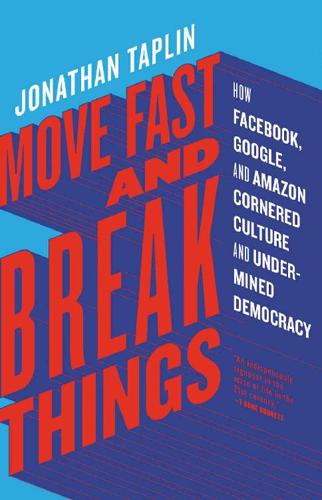
Move Fast and Break Things: How Facebook, Google, and Amazon Cornered Culture and Undermined Democracy
by
Jonathan Taplin
Published 17 Apr 2017
In that post, altoid asked for some programming help and gave his email address: rossulbricht@gmail.com. Searching the web for Ross Ulbricht led to a young man from Texas who, just like Dread Pirate Roberts, admired Ludwig von Mises and Ron Paul. Alford was pretty sure he had the proprietor of Silk Road, but it took him more than three months to convince the FBI that this was their man. Two months after Ross Ulbricht was arrested, the notorious cyberanarchist Cody Wilson, inventor of the world’s first 3-D-printed handgun, stood onstage in London at the MIT Bitcoin Expo and castigated his colleagues: “Ross Ulbricht is alleged to be the founder and operator of Silk Road, the glittering jewel of all things libertarian, black market, and wonderful.
…
In a sad postscript to Pallente’s efforts to change the DMCA, Google and their ally Public Knowledge created a campaign to push Pallante out of the office that controls copyright policy. Pallante was fired in October of 2016. 5. The final tale of the pirates of the Internet concerns Dread Pirate Roberts, a.k.a. Ross Ulbricht, founder of Silk Road, the Internet drug marketplace that the FBI claimed grossed more than $1 billion between 2011 and 2013. Ulbricht’s life had been changed by reading Ayn Rand, and the Austrian economist Ludwig von Mises, the oracle of the modern American libertarian movement. According to Mises, a citizen must have economic freedom in order to be politically and morally free.
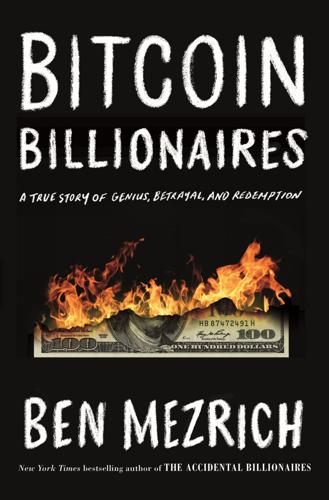
Bitcoin Billionaires: A True Story of Genius, Betrayal, and Redemption
by
Ben Mezrich
Published 20 May 2019
All of them eager to be there, gravitating toward the twins as they worked to turn Bitcoin into something respectable. And up until today, fighting that fight had meant Silk Road was hanging around their neck every day like a drug-addled albatross. And now suddenly, just like that, it was gone: cooked, just like Ross Ulbricht, the twenty-nine-year-old who had been IDed as the mogul behind the biggest illegal drug bazaar in history. “Dread Pirate Roberts is going to jail.” Dread Pirate Roberts was the online name Ulbricht had given himself, after the Cary Elwes character in the movie The Princess Bride. In the movie, he’s a mythic character who, it turned out, is actually multiple pirates, the name being handed down from generation to generation.
…
And Amsterdam had just been one stop on what he’d begun to think of as his Comeback Tour: a multiweek, globe-trotting excursion, filled with speaking gigs, meet-ups, and sit-downs. Everyone wanted to talk about Bitcoin. Contrary to conventional wisdom, the price had skyrocketed since Silk Road had gone down, actually reaching $1,000 a coin within one month of Ross Ulbricht’s arrest. The tenfold rise was incredible to fathom: the Winklevoss twins alone were now sitting on $200 million in Bitcoin. And though BitInstant might have been down—temporarily closed, momentarily shuttered—Charlie certainly wasn’t; he was still one of the main faces of Bitcoin. Even if the twins weren’t taking his calls, even if they were really trying to move past him, even if his site was technically down, he would return, bigger and brasher than ever.
…
Over to his right, about five yards away, he could see the prosecuting team. Serrin Turner, the assistant U.S. Attorney who had been the front man on the case since before Charlie had agreed to settle, and Turner’s various assistants. Fitting, since Turner had also led the prosecution against Silk Road that had sent Ross Ulbricht to prison for life. Next to them, Preet Bharara himself, the U.S. Attorney for the Southern District, the famous prosecutor who had taken down too many white-collar criminals and Wall Street bankers to count. And somewhere behind them, the IRS agent who had first arrested Charlie at JFK, Gary Alford, there to witness the results of all his hard work.
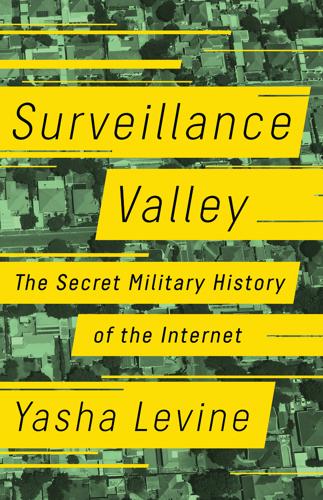
Surveillance Valley: The Rise of the Military-Digital Complex
by
Yasha Levine
Published 6 Feb 2018
And OTF promised that this was just a start: “By leveraging social network effects, we expect to expand to a billion regular users taking advantage of OTF-supported tools and Internet Freedom technologies by 2015.”132 False Sense of Security While accolades for the Tor Project, Signal, and other crypto apps funded by the US government rolled in, a deeper look showed that they were not as secure or as impervious to government penetration as their proponents claimed. Perhaps no story better exemplifies the flaws in impenetrable crypto security than that of Ross Ulbricht, otherwise known as Dread Pirate Roberts, the architect of Silk Road. After its founding in 2012, Silk Road grew rapidly and appeared to be a place where organized criminals could hide in plain sight—until it wasn’t. In October 2013, four months after Edward Snowden came out of hiding and endorsed Tor, a twenty-nine-year-old native Texan by the name of Ross Ulbricht was arrested in a public library in San Francisco. He was accused of being Dread Pirate Roberts and was charged with multiple counts of money laundering, narcotics trafficking, hacking, and, on top of it all, murder.
…
In 2015, when I first read these statements from the Tor Project, I was shocked. This was nothing less than a veiled admission that Tor was useless at guaranteeing anonymity and that it required attackers to behave “ethically” in order for it to remain secure. It must have come as an even greater shock to the cypherpunk believers like Ross Ulbricht, who trusted Tor to run his highly illegal Internet business and who is now in jail for the rest of his life. Tor’s spat with the researchers at Carnegie Mellon University revealed another confusing dynamic. Whereas one part of the federal government—which included the Pentagon, State Department, and the Broadcasting Board of Governors—funded the ongoing development of the Tor Project, another wing of this same federal government—which included the Pentagon, the FBI, and possibly other agencies—was working just as hard to crack it.
…
David Golumbia, The Politics of Bitcoin: Software as Right-Wing Extremism (Minneapolis: University of Minnesota Press, 2016); Andy Greenberg, This Machine Kills Secrets: How WikiLeakers, Cypherpunks, and Hacktivists Aim to Free the World’s Information (New York: Dutton, 2012). 57. Timothy C. May, Crypto Anarchy and Virtual Communities (December 1994), https://invisiblemolotov.files.wordpress.com/2008/06/crypto_anarchist.pdf. 58. Dread Pirate Roberts, message on the Silk Road Forum, March 20, 2012 (United States of America v. Ross Ulbricht, Exhibit 4, filed April 16, 2015). 59. Aaron Sankin, “Searching for a Hitman in the Deep Web,” Daily Dot, October 10, 2013, https://www.dailydot.com/crime/deep-web-murder-assassination-contract-killer/. 60. Gary Brecher and Mark Ames, “Interview with Gunnar Hrafn Jonsson,” Radio War Nerd, episode 28, April 7, 2016, https://www.patreon.com/posts /radio-war-nerd-7–5106280. 61.
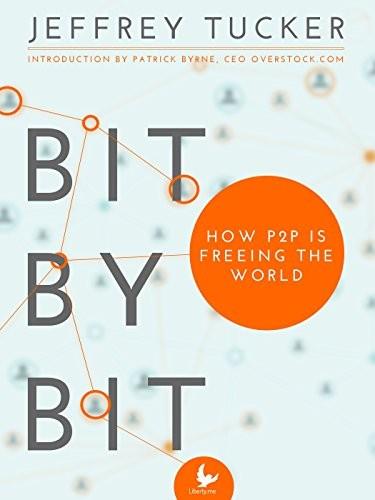
Bit by Bit: How P2P Is Freeing the World
by
Jeffrey Tucker
Published 7 Jan 2015
Governments have never been able to achieve their prohibitionist aims but they do create conditions that lead to massive carnage. So far as I’m concerned, the site founder and administrator who called himself the “Dread Pirate Roberts” should get the Nobel Peace Prize. The person alleged to hold this title is Ross Ulbricht, with whom I corresponded as the site was being conceived. It was obvious to me that he loved human liberty and explicitly so. He stuck his neck out to make progress in human affairs possible, just as every great entrepreneur in history. Governments have expended trillions of dollars, caused a million deaths, and shredded every civilized liberty in the name of the war on drugs.
…
Lots of people just use them recreationally. There’s really nothing more to say. But instead of thanking the Silk Road for doing for society what needs to be done—a brilliant and peaceful alternative to ghastly war—the State shut it down, arrested the alleged mastermind. That man, who is now in jail, is my friend Ross Ulbricht, and he is a brilliant and wonderful person, as is his mother who works every day for real justice for her son. In the meantime, what has happened? Silk Road 2.0 came up. It was doing booming business, more than ever, for a full year. The old products were all back. The user reviews were back.
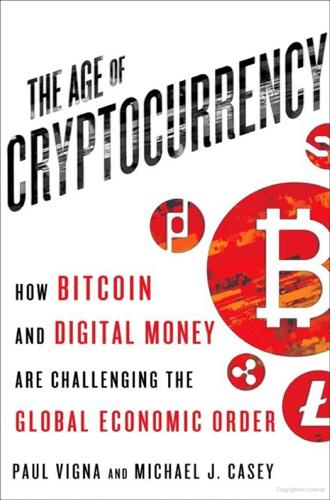
The Age of Cryptocurrency: How Bitcoin and Digital Money Are Challenging the Global Economic Order
by
Paul Vigna
and
Michael J. Casey
Published 27 Jan 2015
The FBI estimated that between February 6, 2011, and July 23, 2013, over 1.2 million transactions on the site generated sales of 9.5 million bitcoins. (Given the wild fluctuations in price during that time, it’s hard to extrapolate how much that is in dollars.) It would come to an end in October 2013 when the FBI arrested a Texas native named Ross Ulbricht in a San Francisco library. The agency charged him with money laundering and conspiracy to traffic narcotics—to which Ulbricht has, as of the time of writing, pleaded not guilty; his lawyer has said he is not Dread Pirate Roberts. The agency also said he solicited six murders-for-hire, though there was no evidence anybody was killed.
…
Moneyed investors came, following in the footsteps of Cameron and Tyler Winklevoss—the twin brothers famous for their legal tussles with Facebook founder Mark Zuckerberg—who had announced back in April that they had acquired a massive stock of bitcoin then worth $11 million. As bitcoin’s price began to rise, rise, and rise further, the twins’ investment started looking well timed indeed. Not even the dramatic October 2 news that the Federal Bureau of Investigation had arrested Ross Ulbricht, the alleged Dread Pirate Roberts mastermind of the Silk Road site, and had seized 26,000 bitcoins, then worth $3.6 million, would pose much of a setback. The price went from $125 at the end of September to $198 a month later, even as word spread on October 26 that the FBI had hauled in an additional 144,000 bitcoins (then $28 million) from its Silk Road operation.
…
Feedback Requested,” Bitcoin Forum, https://bitcointalk.org/index.php?topic=3984.260. In August 2012, Forbes’s Andy Greenberg: Andy Greenberg, “Black Market Drug Site ‘Silk Road’ Booming: $22 Million in Annual Sales,” Forbes, August 6, 2012. The FBI estimated that between February 6, 2011: From the FBI complaint against Ross Ulbricht, September 27, 2013, http://www.scribd.com/doc/172773561/Criminal-Complaint-Against-Silk-Road-and-Dread-Pirate-Roberts. Trading platforms for bitcoin started appearing: Various developments in 2011–12 taken from the timeline at http://historyofbitcoin.org/. Charlie Shrem, a Brooklyn-based twenty-one-year-old: Adrianne Jeffries, “Bored with Bitcoin?
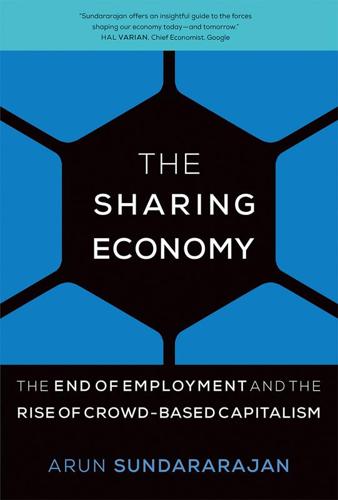
The Sharing Economy: The End of Employment and the Rise of Crowd-Based Capitalism
by
Arun Sundararajan
Published 12 May 2016
In the abstract, this may seem like a flimsy justification for why tech companies are valuable; when thinking about something that represents billions of dollars of value, one naturally expects that value to be backed up by something tangible like physical resources or government force, not just some ethereal instantiation of the fact that it’s hard for large groups of people to suddenly move from one social configuration to another.19 “Fortunately,” concludes Buterik in the blog post, “we still have many decades to go in seeing exactly how the decentralized protocol ecosystem is going to play out.” It looks like an interesting future indeed. Notes 1. See the link to OB1 at https://www.usv.com/portfolio#2015. 2. The video is posted on YouTube and available at https://youtu.be/nuRgHbTU9pk. 3. Benjamin Weiser, “Ross Ulbricht, Creator of Silk Road Website, Is Sentenced to Life in Prison,” New York Times, May 29, 2015. http://www.nytimes.com/2015/05/30/nyregion/ross-ulbricht-creator-of-silk-road-website-is-sentenced-to-life-in-prison.html. 4. Andy Greenberg, “Inside the ‘DarkMarket’ Prototype, a Silk Road the FRI Can Never Seize,” Wired, April 24, 2014. http://www.wired.com/2014/04/darkmarket. 5.
…
It evolved from a prototype peer-to-peer market called DarkMarket developed in April 2014 by Amir Taaki, the founder of the Internet anarchist group unSYSTEM. Taaki created DarkMarket following the shuttering of a market called the Silk Road, best known for facilitating the sales of illegal drugs, and whose founder Ross Ulbricht is currently serving a life sentence in a US prison.3 “Like a hydra, those of us in the community that push for individual empowerment are in an arms race to equip the people with the tools needed for the next generation of digital black markets,” Taaki explained to Wired reporter Andy Greenberg in 2014.4 On its website, OpenBazaar commits to “zero fees,” indicating that because there are no parties in the middle of the transactions, there are no fees to pay.
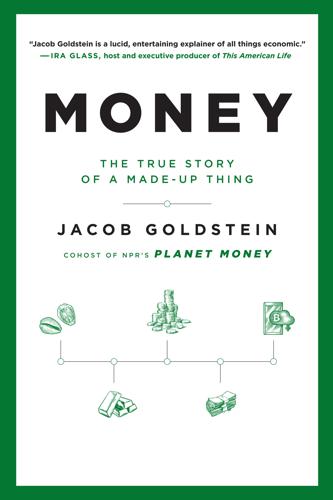
Money: The True Story of a Made-Up Thing
by
Jacob Goldstein
Published 14 Aug 2020
Now that people had a reason to want bitcoin, the price of bitcoin relative to dollars started to rise. By early 2011, you could exchange one dollar for one bitcoin. After the website Gawker published the first mainstream story about Silk Road in June, the exchange rate spiked to more than $30 per bitcoin. In 2013, the FBI arrested a man named Ross Ulbricht, who they said was the Dread Pirate Roberts, the creator of Silk Road. Ulbricht was tried and found guilty of drug trafficking and conspiracy to commit money laundering. “The stated purpose [of Silk Road] was to be beyond the law,” the judge said at Ulbricht’s sentencing. “In the world you created over time, democracy didn’t exist.”
…
The quotes from the Dread Pirate Roberts are from “Collected Quotations of the Dread Pirate Roberts, Founder of Underground Drug Site Silk Road and Radical Libertarian,” published in Forbes. The drug listings from the Silk Road are from a Sept. 27, 2013, complaint filed in United States v. Ross William Ulbricht, aka Dread Pirate Roberts. The quote from Ulbricht’s sentencing is from the Wired story “Silk Road Creator Ross Ulbricht Sentenced to Life in Prison,” by Andy Greenberg. The Senate hearing was called “Beyond Silk Road: Potential Risks, Threats, and Promises of Virtual Currencies.” Testimony is posted on the committee’s website. The Washington Post story “This Senate hearing is a bitcoin lovefest” was by Timothy B.
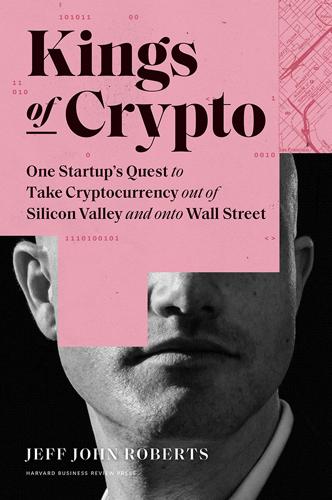
Kings of Crypto: One Startup's Quest to Take Cryptocurrency Out of Silicon Valley and Onto Wall Street
by
Jeff John Roberts
Published 15 Dec 2020
Worse, the antics of the bumbling Bitcoin Foundation paled next to what serious criminals were doing with the currency. In late 2013, the media reported the arrest of the Dread Pirate Roberts—the mastermind behind the global drug bazaar known as the Silk Road. In a fit-for-Hollywood moment, disguised FBI agents tackled the Dread Pirate—aka Ross Ulbricht—in a San Francisco library and, critically, snatched away his laptop before he could close the cover and encrypt all the data it contained. The laptop provided oodles of information about Ulbricht’s sprawling criminal empire, including the keys to his vast stashes of bitcoin—the currency that had made the Silk Road possible in the first place.
…
Alford has a strange habit—he always reads documents three times—but this idiosyncrasy paid off when, on one of his triple readings, he recognized a connection between a Gmail address and the Dread Pirate Roberts, the anonymous mastermind of the Silk Road. Alford’s discovery led the Justice Department to identify and convict Ross Ulbricht, aka the Dread Pirate. Alford’s colleague Utzke had foreseen the rise of digital money way back in the 1980s and chose a novel concentration of studies in college—economics, forensic accounting, and computer science—in anticipation of something like bitcoin arriving one day. At the IRS, as the crypto markets picked up steam in early 2016, he embarked on an investigation of crypto tax evasion.
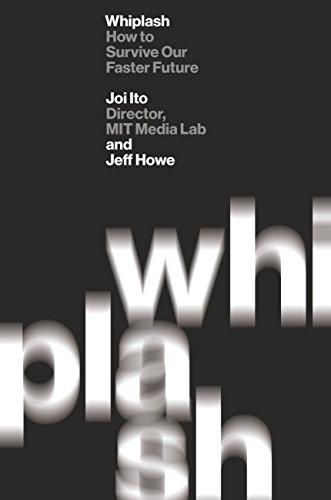
Whiplash: How to Survive Our Faster Future
by
Joi Ito
and
Jeff Howe
Published 6 Dec 2016
Gox’s Missing Bitcoins,” Computerworld, December 31, 2014, http://www.computerworld.com/article/2863167/police-blame-fraud-for-most-of-mt-goxs-missing-bitcoins.html. 24 “MtGox Bitcoin Chief Mark Karpeles Charged in Japan,” BBC News, September 11, 2015, http://www.bbc.com/news/business-34217495. 25 Adrian Chen, “The Underground Website Where You Can Buy Any Drug Imaginable,” Gawker, June 1, 2011, http://gawker.com/the-underground-website-where-you-can-buy-any-drug-imag-30818160. 26 Sarah Jeong, “The DHS Agent Who Infiltrated Silk Road to Take Down Its Kingpin,” Forbes, January 14, 2015, http://www.forbes.com/sites/sarahjeong/2015/01/14/the-dhs-agent-who-infiltrated-silk-road-to-take-down-its-kingpin/#6250111369dd. 27 Andy Greenberg, “Silk Road Mastermind Ross Ulbricht Convicted of All 7 Charges,” WIRED, February 4, 2015, https://www.wired.com/2015/02/silk-road-ross-ulbricht-verdict/. 28 Riley Snyder, “California Investor Wins Federal Government’s Bitcoin Auction,” Los Angeles Times, July 2, 2014, http://www.latimes.com/business/technology/la-fi-tn-bitcoin-auction-20140702-story.html. 29 John Biggs, “US Marshals to Sell 44,000 BTC at Auction in November,” TechCrunch, October 5, 2015, http://social.techcrunch.com/2015/10/05/us-marshals-to-sell-44000-btc-at-auction-in-november/. 30 “FAQ—Bitcoin,” Bitcoin.org, accessed May 29, 2016, https://bitcoin.org/en/faq. 31 Eric Hughes, “A Cypherpunk’s Manifesto,” Electronic Frontier Foundation, March 9, 1993, https://w2.eff.org/Privacy/Crypto/Crypto_misc/cypherpunk.manifesto. 32 Joichi Ito, “Shenzhen Trip Report—Visiting the World’s Manufacturing Ecosystem,” Joi Ito’s Web, September 1, 2014, http://joi.ito.com/weblog/2014/09/01/shenzhen-trip-r.html. 33 “Phantom Series—Intelligent Drones,” DJI, http://www.dji.com/products/phantom. 34 “The World’s First and Largest Hardware Accelerator,” HAX, https://hax.co/.
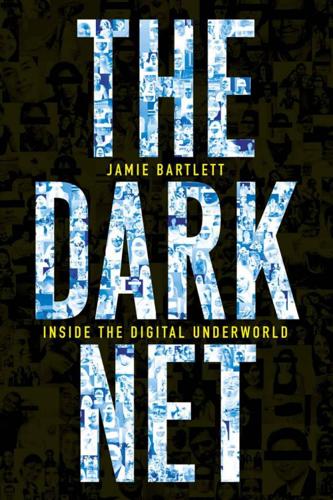
The Dark Net
by
Jamie Bartlett
Published 20 Aug 2014
Everything changed in autumn 2013. Despite the efforts of site administrators and the Silk Road communities, undercover FBI agents had been making purchases on Silk Road from November 2011, and had been closely tracking DPR and other key vendors and site admins. On 1 October 2013, they arrested twenty-nine-year-old Ross Ulbricht in a San Francisco library on suspicion of drug trafficking, soliciting murder, facilitating computer hacking and money laundering.fn2 They believed that they had found the Dread Pirate Roberts. Ulbricht was a university graduate and self-confessed libertarian who, until his arrest, had been living under the name Joshua Terrey in a small shared flat near to the library.
…
Perhaps someday even the “war on drugs” will end because the masses will understand us instead of fearing us. To sum up the entirety of this post and to answer your question, the Silk Road, to me, means hope.’ p.138 ‘On 1 October 2013 . . .’ http://edition.cnn.com/2013/10/04/world/americas/silk-road-ross-ulbricht/, see also http://arstechnica.com/security/2013/10/silk-road-mastermind-unmasked-by-rookie-goofs-complaint-alleges/ and http://www.bbc.co.uk/news/technology-24371894. p.138 ‘He had told his housemates . . .’ http://www.wired.com/threatlevel/2013/10/ulbricht-delay/. The FBI’s investigation was led by Christopher Tarbell, the agent responsible for the 2011 New York sting that caught LulzSec hacker Hector Monsegur (aka Sabu).
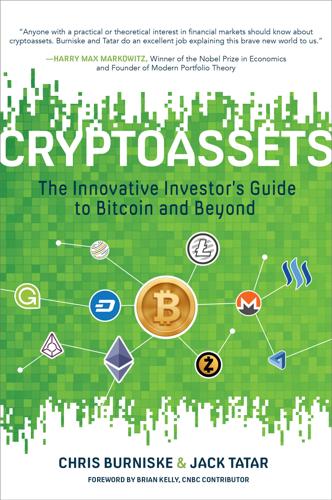
Cryptoassets: The Innovative Investor's Guide to Bitcoin and Beyond: The Innovative Investor's Guide to Bitcoin and Beyond
by
Chris Burniske
and
Jack Tatar
Published 19 Oct 2017
At this point, bitcoin’s spike captured the attention of the People’s Bank of China, which promptly implemented restrictions on bitcoin’s use, declaring it was “not a currency in the real meaning of the word.”5 The China ruling, combined with the FBI’s capture of the creator of the Silk Road, Ross Ulbricht,6 and soon thereafter the collapse of the biggest exchange at the time, Mt. Gox,7 put many bitcoin investors on edge as to its long-term viability in the face of government and law enforcement crackdowns.8 Bitcoin’s subsequent price descent through all of 2014, bottoming in January 2015, was volatile, prolonged, and dispiriting for many early adopters who had been drawn to the new concept.
…
CoinDesk BPI. 3. https://www.bloomberg.com/news/articles/2013-03-28/bitcoin-may-be-the-global-economys-last-safe-haven. 4. http://money.cnn.com/2013/11/27/investing/bitcoin-1000/; http://money.cnn.com/2013/11/18/technology/bitcoin-regulation/?iid=EL. 5. http://www.nytimes.com/2013/12/06/business/international/china-bars-banks-from-using-bitcoin.html. 6. https://www.fbi.gov/contact-us/field-offices/newyork/news/press-releases/ross-ulbricht-aka-dread-pirate-roberts-sentenced-in-manhattan-federal-court-to-life-in-prison. 7. https://www.theguardian.com/money/us-money-blog/2014/feb/25/bitcoin-mt-gox-scandal-reputation-crime. 8. http://www.bbc.com/news/technology-24371894. 9. Bitcoiner refers to an advocate of Bitcoin. 10. We’ll describe wallets in detail in Chapter 14. 11. http://www.bankofengland.co.uk/publications/Documents/quarterlybulletin/2014/qb14q3digitalcurrenciesbitcoin1.pdf. 12. http://insidebitcoins.com/new-york/2015. 13. https://www.bloomberg.com/news/features/2015-09-01/blythe-masters-tells-banks-the-blockchain-changes-everything. 14. http://www.economist.com/news/leaders/21677198-technology-behind-bitcoin-could-transform-how-economy-works-trust-machine. 15.
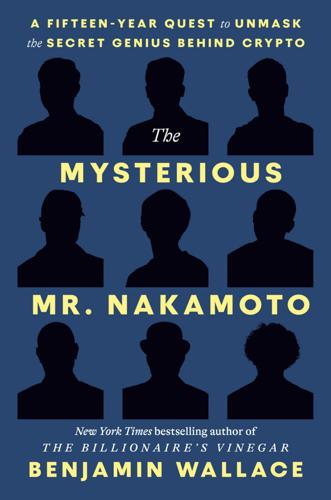
The Mysterious Mr. Nakamoto: A Fifteen-Year Quest to Unmask the Secret Genius Behind Crypto
by
Benjamin Wallace
Published 18 Mar 2025
On a 2012 episode of The Good Wife, the U.S. government was pursuing Bitcoin’s creator because of his “illegal online currency.” On The Simpsons, Krusty the Klown went broke after investing in bitcoin, among other things. In late 2013, Silk Road, the dark web marketplace where bitcoin was the currency of choice, was shut down, its creator Ross Ulbricht arrested. In 2014, Mt. Gox, the safe and reliable exchange where I’d parked my remaining seven bitcoins, declared bankruptcy after 850,000 bitcoins went missing, and its owner Mark Karpelès was arrested; he was cleared of theft but eventually received a suspended prison sentence for “electronic record tampering.”
…
THE WORLD ANTI-FIAT SOCIAL CLUB BITCOIN IS THE PIN, NOT THE BUBBLE INTROVERTED BUT WILLING TO DISCUSS CRYPTO WE WERE BORN TOO LATE TO EXPLORE THE SEAS, TOO EARLY TO EXPLORE THE STARS, JUST RIGHT TO FIX THE MONEY I AM SATOSHI NAKAMOTO On a long hallway on the second floor, I crouched to examine what looked like trash on the carpeted ground. It was a five-dollar bill, or what remained of one. Someone had torn it into tiny pieces, in a fit of antidollar pique or as some kind of impromptu art installation. A large sign, “FREE ROSS!,” sought one million signatures for a petition to liberate Ross Ulbricht, the imprisoned creator of Silk Road who’d operated as Dread Pirate Roberts, the Princess Bride character who, like some people’s conception of Satoshi Nakamoto, wasn’t an individual but an identity handed from one person to the next. Had Bitcoin become more mainstream? Had the mainstream become more Bitcoin?
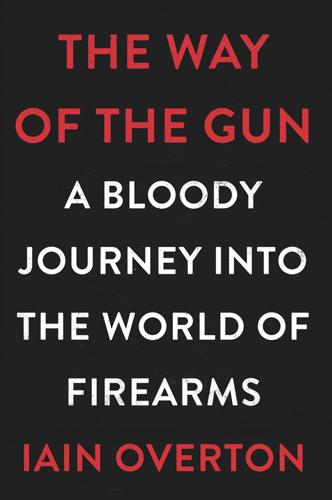
The Way of the Gun: A Bloody Journey Into the World of Firearms
by
Iain Overton
Published 15 Apr 2015
After all, the US’s Bureau of Alcohol, Tobacco, Firearms and Explosives has acknowledged it runs agents who pose as fake hit men, men who wear the jewellery, sleeveless tank tops and facial hair of biker gangs, entrapping those who seek guns for hire.35 In a twist of irony, it was even alleged that Ross Ulbricht, the supposed founder of Silk Road – a TOR portal that sells all manner of narcotics, drugs and illegal services – commissioned the murder of six people through hitmen he had contacted on the internet.36 Nobody was actually murdered, although the FBI did say they had faked the death of one former employee of Silk Road and claimed they had convinced Ulbricht the murder had taken place.
…
Many categories of guns, including automatics and some handguns, are banned from sale altogether. 34. A ban on semi-automatic rifles was introduced in September 2011, but it was lifted at the end of February 2013. 35. http://www.gq.com/news-politics/newsmakers/201311/fake-hitman-murder-for-hire 36. http://www.forbes.com/sites/andygreenberg/2013/11/21/alleged-silk-road-ross-ulbricht-creator-now-accused-of-six-murder-for-hires-denied-bail/ 37. http://www.washingtonpost.com/blogs/the-switch/wp/2013/10/02/silk-roads-mastermind-allegedly-paid-80000-for-a-hitman-the-hitman-was-a-cop/ 38. The assassination of Abraham Lincoln was not the original plan. John Wilkes Booth and a group of co-conspirators were meant to kidnap the president and hold him hostage in exchange for prisoners.
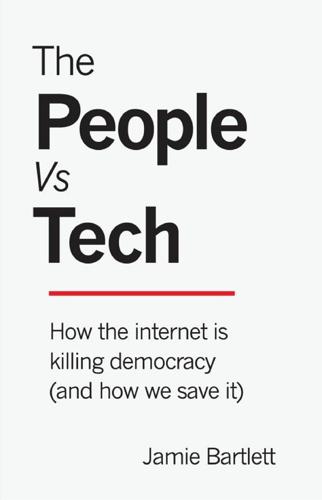
The People vs Tech: How the Internet Is Killing Democracy (And How We Save It)
by
Jamie Bartlett
Published 4 Apr 2018
One way to understand the fundamental nature of the crypto-anarchist challenge to the state is to consider how the authorities are responding. There is exactly zero chance that governments of the world will give up on taxation or censorship – they will try to crush crypto-anarchy first. When the founder of Silk Road Ross Ulbricht, also known by the pseudonym ‘Dread Pirate Roberts’, was finally caught, he was sentenced to multiple life imprisonment without the possibility of parole. On delivering this draconian sentence in 2015, Judge Forrest told the court that Silk Road’s very existence was ‘. . . deeply troubling, terribly misguided, and very dangerous’.
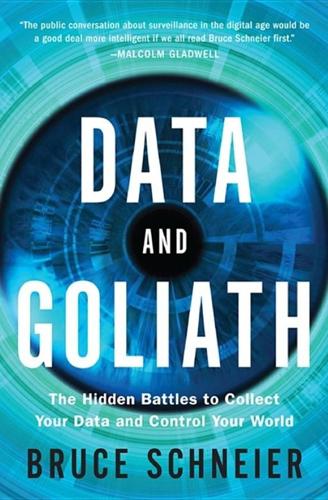
Data and Goliath: The Hidden Battles to Collect Your Data and Control Your World
by
Bruce Schneier
Published 2 Mar 2015
DEA staff were instructed to lie in court to conceal that the NSA passed data to the agency. The NSA’s term is “parallel construction.” The agency receiving the NSA information must invent some other way of getting at it, one that is admissible in court. The FBI probably got the evidence needed to arrest the hacker Ross Ulbricht, aka Dread Pirate Roberts, who ran the anonymous Silk Road website where people could buy drugs and more, in this way. Mission creep is also happening in the UK, where surveillance intended to nab terrorists is being used against political protesters, and in all sorts of minor criminal cases: against people who violate a smoking ban, falsify their address, and fail to clean up after their dogs.
…
W., 230 Bush, George W., 230 business models, surveillance-based, 50, 56, 113–14, 206 Buzzfeed, 28–29 cable companies, surveillance by, 47–48 CALEA (Communications Assistance for Law Enforcement Act; 1994), 83, 120, 165 need for repeal of, 182 Callahan, Mary Ellen, 162–63 Cameron, David, 222, 228 Canada, in international intelligence partnerships, 76 Caproni, Valerie, 83 Carnegie Mellon University, 41 Carter, Jimmy, 230 cash registers, as computers, 14 cell phone metadata: NSA collection of, 20–21, 36, 37, 62, 138, 339 Stanford University experiment on, 21–22 cell phones: GPS-enabled, 3, 14 multiple functions of, 46 NSA’s remote activation of, 30 as surveillance devices, 1–3, 14, 28, 39, 46–47, 62, 100, 216–17, 219, 339 wiretapping of, 148 censorship, 94–95, 106–7, 187–88 self-, 95, 96 Census Bureau, US, 197 Central Intelligence Agency (CIA), 67 in domestic surveillance operations, 104 Senate Intelligence Committee hacked by, 102 Chambers, John, 122 Charter of Fundamental Rights of the European Union, 232, 364 chat services, 13, 83, 119, 226 government surveillance of, 29, 62, 81 checks and balances: oversight and, 175 secrecy and, 100 Chicago Police Department, 160 China: censorship in, 94, 95, 150–51, 187, 237 cyberattacks from, 42, 73, 132, 142, 148, 149, 180 50 Cent Party in, 114 mass surveillance by, 70, 86, 140, 209 Uighur terrorists in, 219, 287 ChoicePoint, 79, 116 Christie, Chris, 102 Church committee, 176 Cisco, 85, 122 Clapper, James, 129, 130, 336 Clinton, Hillary, 101, 106 Clinton administration, 120 Clipper Chip, 120–21 cloud computing, 5, 59, 60 consumer rights and, 60, 221 government surveillance and, 122 incriminating materials and, 59, 272 CNET, 125 Cobham, 3, 244 Code of Fair Information Practices (1973), 194 Code Pink, 104 Cohen, Jared, 4 COINTELPRO, 103 Cold War, 63, 71, 75, 207, 229 “collect,” NSA’s use of term, 129 Comcast, 358 as information middleman, 57 surveillance by, 48–49 commons, as lacking on Internet, 188–89 communication: computers as devices for, 13–14 ephemeral vs. recorded, 127–29 Communications Assistance for Law Enforcement Act see CALEA Communications Security Establishment Canada (CSEC), 40–41 Communists, Communism, 92–93 fall of, 63 complexity, as enemy of security, 141 Comprehensive National Cybersecurity Initiative, 69 computers, computing: cash registers as, 14 as communication devices, 13–14 cost of, 24 data as by-product of, 3–4, 5, 13–19 increasing power of, 35 smartphones as, 14 see also electronic devices Computer Security Act (1987), 187 COMSEC (communications security), 164–65 Congress, US, 237 NSA oversight by, 172–76 privacy laws and, 198–99 secrecy and, 100 “connect-the-dots” metaphor, 136, 139, 322 consent, as lacking in mass surveillance, 5, 20, 51 Consent of the Networked (MacKinnon), 210, 212 Constitution, US: Bill of Rights of, 210 First Amendment of, 189 Fourth Amendment of, 67, 156, 170 warrant process and, 92, 179, 184 Consumer Privacy Bill of Rights (proposed), 201, 202 consumer rights: cloud computing and, 30 data collection and, 192–93, 200–203, 211 convenience, surveillance exchanged for, 4, 49, 51, 58–59, 60–61 cookies, 47–48, 49 correlation of, 49 correlation, of data sets, 40–45, 49, 133, 263–64 Counterintelligence Field Activity, 69, 104 counterterrorism: excessive secrecy in, 171 as FBI mission, 184, 186 fear and, 222, 226, 227–30 mass surveillance as ineffective tool in, 137–40, 228 as NSA mission, 63, 65–66, 184, 222 NSA’s claimed successes in, 325 Creative Cloud, 60 credit bureaus, as data brokers, 52 credit card companies, data collected by, 14, 23–24 credit card fraud, 116, 313 data mining and, 136–37 credit cards, RFID chips on, 29 credit scores, 112–13, 159, 196 Credit Suisse, 35–36 CREDO Mobile, 207 Cryptocat, 215 cryptography, see encryption cultural change: systemic imperfection and, 163–64 transparency and, 161 Customer Relations Management (CRM), 51–52 customer scores, 110–11 Cyber Command, US, 75, 146, 180–81, 186, 187 cybercrime, increasing scale of, 116–19, 142 cyber sovereignty, 187–88 cyberwarfare, 74–75, 81, 132, 220 arms race in, 180–81 attack vs. defense in, 140–43 collateral damage from, 150–51 military role in, 185–86 NIST’s proposed defensive role in, 186–87 see also Cyber Command, US Dalai Lama, 72 Daniel, Jon, 101 data: analysis of, see data mining as by-product of computing, 3–4, 5, 13–19 historical, 35–37 increasing amount of, 18–19 see also metadata data broker industry, 2, 5, 41, 48, 51–53, 79, 234 correction of errors in, 269 customer scores in, 110–11 lack of consent in, 5, 51 data collection, 234 accountability and, 193, 196, 197–99 benefits of, 8, 190 fiduciary responsibility and, 204–5 government regulation and, 197–99 harms from, 8 health and, 16 limits on, 191, 192, 199–200, 202, 206 NSA definition of, 129, 320 opt-in vs. opt-out consent in, 198 respect for context in, 201 rights of individuals in, 192–93, 200–203, 211, 232 salience of, 203–4 security safeguards in, 192, 193–95, 202, 211 from social networking sites, 200–201 specification of purpose in, 192 see also mass surveillance Dataium, 195–96 data mining, 33–45 adversarial relationships and, 138–39 algorithmic-based, 129–31, 136–37, 159, 196 anonymity and, 42–45 correlation of data sets in, 40–45, 49, 133 credit card fraud and, 136–37 of historical data, 35–37 inferences from, see inferences, from data mining limits on uses of, 191, 192, 195–97, 206 personalized advertising and, 33, 35, 38 political campaigns and, 33, 54 quality assurance and, 34, 54, 136–37, 192, 194, 202 relationship mapping in, 37–38 security threats and, 136–40 tax fraud and, 137 data storage: capacity for, 18–19 cloud-based, 5, 59 limits on, 191, 199–200, 206 low cost of, 5, 18, 24, 144, 206 “save everything” model of, 34 Datensparsamkeit, 200 de-anonymizing, by correlation of data sets, 43–44, 263–64 Declaration of the Rights of Man and of the Citizen, 210 Defense Department, US: Counterintelligence Field Activity of, 69, 104 Cyber Command of, 75 domestic surveillance by, 69, 184 Defentek, 3 delete, right to, 201–2 democracy: government surveillance and, 6, 95, 97–99, 161–62, 172–73 whistleblowers as essential to, 178 demographic information, data brokers and, 52 denial-of-service attacks, 75 Department of Homeland Security, US, 27, 162–63, 295–96 deportation, discrimination and, 93 DigiNotar, hacking of, 71–72 direct marketing, 52 discrimination: corporate surveillance and, 109–13 government surveillance and, 4, 6, 93, 103–4 in pricing, 109–10 DNA sequencing, 16 de-anonymizing of, 44 DNS injection, 150–51 Doctorow, Cory, 217 “Do Not Track” debate, 80 Do Not Track law, California, 233 DoNotTrackMe, 49 “Don’t Ask Don’t Tell” policy, 197 DoubleClick, 48 Drake, Thomas, 101 Dread Pirate Roberts (Ross Ulbricht), 105 drone helicopters, 25, 29 micro-, 253 drone strikes, mass surveillance and, 94 Drug Enforcement Administration (DEA), 104, 105 Dubai, 27, 43 DuckDuckGo, 124 due process, 168, 184 Duffy, Tim, 227 East Germany, 23 eBay, 57–58 Economist, 91 EDGEHILL, 85 education, collection of data and, 8 Eisenhower, Dwight D., 230 Elbit Systems, 81 Elcomsoft, 150 electronic devices, vendor control of, 59–60 Ello, 124 Ellsberg, Daniel, 101 e-mail, 119, 226 local vs. cloud storage of, 31 Emanuel, Rahm, 234 encryption, 85–86, 224, 344 backdoors and, 86, 120–21, 123, 147–48, 169, 182, 314 business competitiveness and, 119–24 increased corporate use of, 208, 224 individual use of, 215 key length in, 143 NIST and, 186–87 NSA and, 144, 186 NSA undermining of standards for, 148–49 secrecy and, 171 value of, 143–44 Engel, Tobias, 3 Environmental Protection Agency (EPA), pollution regulation by, 194–95 ephemerality, of communication, 127–29 Epsilon, 41 Equifax, 53 error rates, in data mining, 34, 54, 136–37, 269 espionage, 63, 73, 74, 76, 158 surveillance vs., 170, 183–84 Espionage Act (1917), 101 Estonia, cyberattacks on, 75, 132 Ethiopia, 73 European Charter, 169 European Court of Justice, 202, 222 European Parliament, 76 European Union (EU), 195, 200, 202, 226, 238 Charter of Fundamental Rights of, 232, 364 Data Protection Directive of, 19, 79, 80, 159, 191, 209 data retention rules in, 222 Exact Data, 42 executive branch: abuses of power by, 234–35 secrecy of, 100, 170 Executive Order 12333, 65, 173 Facebook, 58, 59, 93, 198 customer scores and, 111 data collection by, 19, 31, 41, 123, 200, 201, 204 as information middleman, 57 manipulation of posts on, 115 paid placements on, 114 real name policy of, 49 Facebook, surveillance by: data-based inferences of, 34, 258 Like button and, 48 relationship mapping by, 37–38 tagged photo database of, 41 face recognition, automatic, 27, 29, 31, 41, 211 fair information practices, 194, 211 fair lending laws, 196 false positives, 137, 138, 140, 323–24 Farrell, Henry, 60 FASCIA, 3 fatalism, mass surveillance and, 224–25 fear: government surveillance and, 4, 7, 95–97, 135, 156–57, 182–83, 222, 226, 227–30 media and, 229 politicians and, 222, 228 privacy trumped by, 228 social norms and, 227–30 Federal Bureau of Investigation (FBI): CALEA and, 83, 120 COINTELPRO program of, 103 cost to business of surveillance by, 121–22 counterterrorism as mission of, 184, 186 data mining by, 42 GPS tracking by, 26, 95 historical data stored by, 36 illegal spying by, 175 IMSI-catchers used by, 165 legitimate surveillance by, 184 Muslim Americans surveilled by, 103 PATRIOT Act and, 173–74 phone company databases demanded by, 27, 67 surveillance of all communications as goal of, 83 warrantless surveillance by, 67–68, 209 wiretapping by, 24, 27, 83, 171 Federal Communications Commission (FCC), 198 Federal Trade Commission, US (FTC), 46–47, 53, 117, 198 Feinstein, Diane, 172 Ferguson, Mo., 160 fiduciary responsibility, data collection and, 204–5 50 Cent Party, 114 FileVault, 215 filter bubble, 114–15 FinFisher, 81 First Unitarian Church of Los Angeles, 91 FISA (Foreign Intelligence Surveillance Act; 1978), 273 FISA Amendments Act (2008), 171, 273, 275–76 Section 702 of, 65–66, 173, 174–75, 261 FISA Court, 122, 171 NSA misrepresentations to, 172, 337 secret warrants of, 174, 175–76, 177 transparency needed in, 177 fishing expeditions, 92, 93 Fitbit, 16, 112 Five Eyes, 76 Flame, 72 FlashBlock, 49 flash cookies, 49 Ford Motor Company, GPS data collected by, 29 Foreign Intelligence Surveillance Act (FISA; 1978), 273 see also FISA Amendments Act Forrester Research, 122 Fortinet, 82 Fox-IT, 72 France, government surveillance in, 79 France Télécom, 79 free association, government surveillance and, 2, 39, 96 freedom, see liberty Freeh, Louis, 314 free services: overvaluing of, 50 surveillance exchanged for, 4, 49–51, 58–59, 60–61, 226, 235 free speech: as constitutional right, 189, 344 government surveillance and, 6, 94–95, 96, 97–99 Internet and, 189 frequent flyer miles, 219 Froomkin, Michael, 198 FTC, see Federal Trade Commission, US fusion centers, 69, 104 gag orders, 100, 122 Gamma Group, 81 Gandy, Oscar, 111 Gates, Bill, 128 gay rights, 97 GCHQ, see Government Communications Headquarters Geer, Dan, 205 genetic data, 36 geofencing, 39–40 geopolitical conflicts, and need for surveillance, 219–20 Georgia, Republic of, cyberattacks on, 75 Germany: Internet control and, 188 NSA surveillance of, 76, 77, 122–23, 151, 160–61, 183, 184 surveillance of citizens by, 350 US relations with, 151, 234 Ghafoor, Asim, 103 GhostNet, 72 Gill, Faisal, 103 Gmail, 31, 38, 50, 58, 219 context-sensitive advertising in, 129–30, 142–43 encryption of, 215, 216 government surveillance of, 62, 83, 148 GoldenShores Technologies, 46–47 Goldsmith, Jack, 165, 228 Google, 15, 27, 44, 48, 54, 221, 235, 272 customer loyalty to, 58 data mining by, 38 data storage capacity of, 18 government demands for data from, 208 impermissible search ad policy of, 55 increased encryption by, 208 as information middleman, 57 linked data sets of, 50 NSA hacking of, 85, 208 PageRank algorithm of, 196 paid search results on, 113–14 search data collected by, 22–23, 31, 123, 202 transparency reports of, 207 see also Gmail Google Analytics, 31, 48, 233 Google Calendar, 58 Google Docs, 58 Google Glass, 16, 27, 41 Google Plus, 50 real name policy of, 49 surveillance by, 48 Google stalking, 230 Gore, Al, 53 government: checks and balances in, 100, 175 surveillance by, see mass surveillance, government Government Accountability Office, 30 Government Communications Headquarters (GCHQ): cyberattacks by, 149 encryption programs and, 85 location data used by, 3 mass surveillance by, 69, 79, 175, 182, 234 government databases, hacking of, 73, 117, 313 GPS: automobile companies’ use of, 29–30 FBI use of, 26, 95 police use of, 26 in smart phones, 3, 14 Grayson, Alan, 172 Great Firewall (Golden Shield), 94, 95, 150–51, 187, 237 Greece, wiretapping of government cell phones in, 148 greenhouse gas emissions, 17 Greenwald, Glenn, 20 Grindr, 259 Guardian, Snowden documents published by, 20, 67, 149 habeas corpus, 229 hackers, hacking, 42–43, 71–74, 216, 313 of government databases, 73, 117, 313 by NSA, 85 privately-made technology for, 73, 81 see also cyberwarfare Hacking Team, 73, 81, 149–50 HAPPYFOOT, 3 Harris Corporation, 68 Harris Poll, 96 Hayden, Michael, 23, 147, 162 health: effect of constant surveillance on, 127 mass surveillance and, 16, 41–42 healthcare data, privacy of, 193 HelloSpy, 3, 245 Hewlett-Packard, 112 Hill, Raquel, 44 hindsight bias, 322 Hobbes, Thomas, 210 Home Depot, 110, 116 homosexuality, 97 Hoover, J.
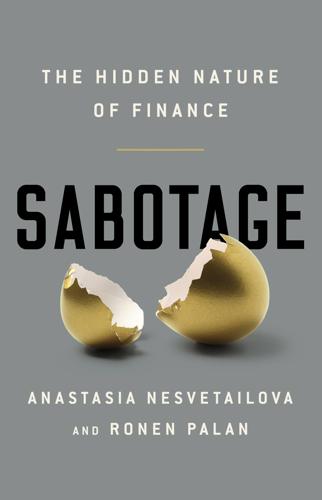
Sabotage: The Financial System's Nasty Business
by
Anastasia Nesvetailova
and
Ronen Palan
Published 28 Jan 2020
Kaminska, ‘Fintech’s security/access paradox problem’, Financial Times, ‘Alphaville’, 3 October 2016, https://ftalphaville.ft.com/2016/10/03/2176471/fintechs-securityaccess-paradox-problem/. 16. Until 2013 the so-called Silk Road (DEF) was the primary e-commerce platform on the dark web. After its founder, Dread Pirate Roberts, or Ross Ulbricht, went down, it was succeeded by AlphaBay and many other dark marketplaces. Dread Pirate Roberts is now in prison serving a life sentence. The authorities still can’t get their hands on most of his bitcoins. 17. L. Katz, ‘Criminals may ditch bitcoin for Litecoin, Dash, study says’, Bloomberg, 8 February 2018, www.bloomberg.com/news/articles/2018-02-08/criminals-are-ditching-bitcoin-for-litecoin-and-dash-study-says. 18.
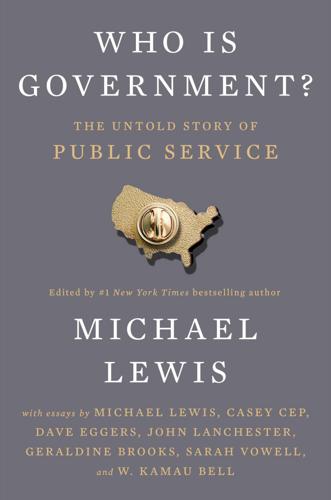
Who Is Government?: The Untold Story of Public Service
by
Michael Lewis
Published 18 Mar 2025
When he found a poster called Altoid hyping the virtues of the brand-new Silk Road marketplace on a drug forum, and a poster with the same alias simultaneously seeking coding advice of the kind you’d need to run the Silk Road site, it piqued his interest. On the coding query, Altoid had initially given an email address for replies, before going back later and deleting it. But Alford discovered that one responder had copied that address into his reply: rossulbricht@gmail.com. Ross Ulbricht is now serving two life sentences plus 40 years. Because of the permanent record of the blockchain, the U.S. Treasury has received a gift that keeps on giving, as Koopman’s team continues to unearth illicit accounts tied to Silk Road crimes. Long after Ulbricht’s arrest, another of Koopman’s agents, Tigran Gambaryan, figured out that the people who had really been stealing from Silk Road were not the drug dealers Ulbricht had plotted to have killed, but a DEA agent and a member of the Secret Service supposedly working alongside the IRS on the case.

Future Sex
by
Emily Witt
Published 10 Oct 2016
It was not a tenable ideology, was in fact totally ungrounded in any wider reality, but for a number of reasons hyperbolic optimism could actually be pondered in the highly specific time and place of San Francisco, in the first half of the second decade of the new millennium, among a group of young educated people with high standards of living. Chris saw it in the hubris of Ross Ulbricht, the founder of Silk Road, the Internet marketplace whose founding premise was that being good at navigating the Internet meant one could, from the humble confines of Glen Park Library, defy a whole range of federal laws. He saw it in the “nontrivial” number of his co-workers who genuinely believed there was a reasonable chance they would live forever, who read the works of Ray Kurzweil and made plans for the singularity.
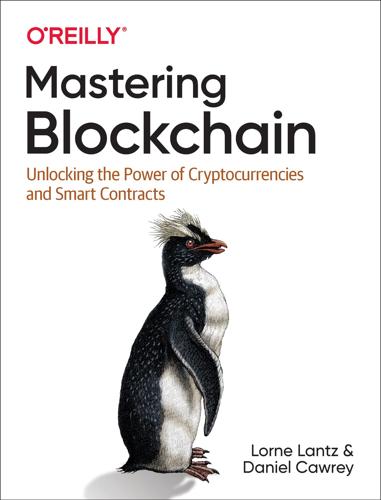
Mastering Blockchain: Unlocking the Power of Cryptocurrencies and Smart Contracts
by
Lorne Lantz
and
Daniel Cawrey
Published 8 Dec 2020
Users would log in to Silk Road using Tor, an anonymous virtual private networking (VPN) software. Tor uses a global network of computers to route internet traffic so it is almost impossible to trace. This allows users to remain anonymous by obscuring identifying information like IP addresses. In October 2013, after a long investigation, the FBI arrested Ross Ulbricht for his role as the operator of Silk Road. They were able to catch Ulbricht by grabbing his encrypted laptop while it was open as he was working at a public library in San Francisco, California. The authorities were able to access everything on his computer, including incriminating information regarding the operations of the site.
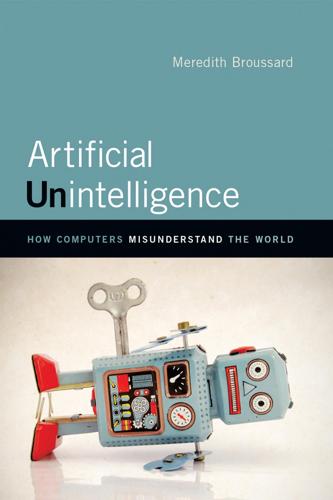
Artificial Unintelligence: How Computers Misunderstand the World
by
Meredith Broussard
Published 19 Apr 2018
Drug use is represented equally across all racial groups, as Michelle Alexander writes in the New Jim Crow.10 However, while poor communities and communities of color are surveilled aggressively to enforce compliance with drug laws, the technology elites who build the surveillance systems seem to be free from scrutiny. Silk Road, an eBay-like marketplace for drugs, flourished openly online from 2011 to 2013. After its founder, Ross Ulbricht, was sentenced to prison, others stepped in to fill the gap. Alex Hern wrote in the Guardian in 2014: “DarkMarket, a system aiming to create a decentralised alternative to online drugs marketplace Silk Road, has rebranded as ‘OpenBazaar’ to improve its image online. OpenBazaar exists as little more than a proof of concept: the plan was sketched out by a group of hackers in Toronto in mid-April, where they won the $20,000 first prize for their idea.”11 Two years later, an entrepreneur named Brian Hoffman took the OpenBazaar code, commercialized it, and got a $3 million investment from venture capital firms Union Square Ventures and Andreesen Horowitz to run the marketplace using Bitcoin, an alternative digital currency.
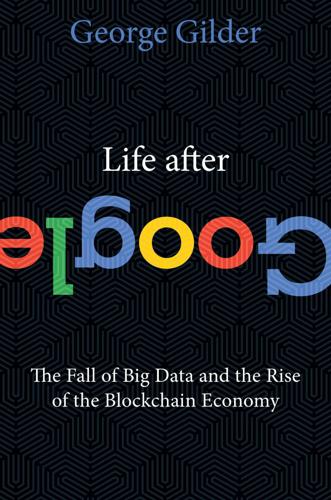
Life After Google: The Fall of Big Data and the Rise of the Blockchain Economy
by
George Gilder
Published 16 Jul 2018
Bluffing his way onto a flight, he gets to Auckland, New Zealand, where he picks up a “Billabong” surfers’ tee shirt that he still occasionally wears as a gesture of rakish defiance. He ends up safely in London, where he remains. For Craig—a man on the lam for years; harried by the Australian Tax Office for a reported bitcoin hoard; charged with “dark net” affiliations, from the mob in Latin America to Ross Ulbricht, the “Dread Pirate Roberts” of Silk Road; juggling several near-bankrupt companies that received as much as fifty-four million Australian dollars in public money—being wrong is just the beginning of being Wright of bitcoin. With the price of bitcoin passing eighteen thousand dollars on the way to revisiting six thousand, many assume that he is rich.
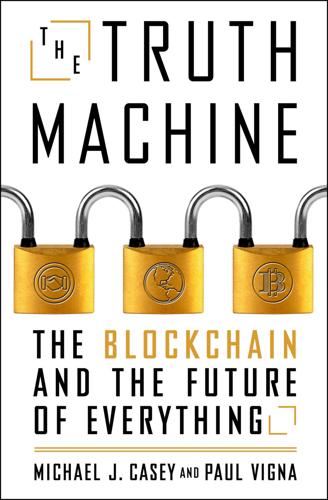
The Truth Machine: The Blockchain and the Future of Everything
by
Paul Vigna
and
Michael J. Casey
Published 27 Feb 2018
As Zooko Wilcox-O’Hearn, founder of a new cryptocurrency called Zcash, explains, it’s all about ensuring a currency’s “fungibility”—the principle that “if you’re going to pay someone with something, and you have two of them, it doesn’t matter which one you give them.” In other words, every dollar, or yen, or pound is worth the same regardless of the serial number on the relevant banknote. This isn’t always the case with bitcoin. When the FBI auctioned the 144,000 bitcoins (worth $1.4 billion as of late November 2017) that it seized from Ross Ulbricht, the convicted mastermind of the Silk Road illicit goods marketplace, those coins fetched a significantly higher price than others in the market. The notion was that they had now been “whitewashed” by the U.S. government. In comparison, other bitcoins with a potentially shady past should be worth less because of the risk of future seizure.
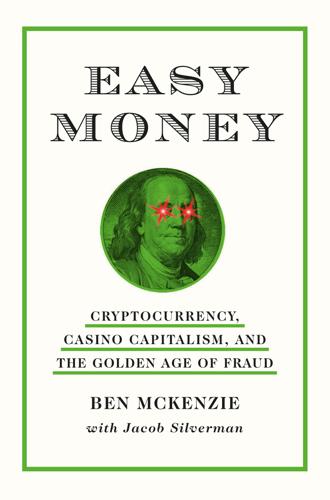
Easy Money: Cryptocurrency, Casino Capitalism, and the Golden Age of Fraud
by
Ben McKenzie
and
Jacob Silverman
Published 17 Jul 2023
Louis Fed, “Federal Funds Effective Rate,” https://fred.stlouisfed.org/series/FEDFUNDS. 8 Jail time: Wikipedia, “Kareem Serageldin,” last modified October, 5, 2022, https://en.wikipedia.org/wiki/Kareem_Serageldin. 8 Bitcoin white paper: Satoshi Yakamoto, “Bitcoin: A Peer-to-Peer Electronic Cash System,” https://bitcoin.org/bitcoin.pdf. 9 cryptographer David Chaum: “Blind signatures for untraceable payments,” Springer-Verlag, 1982, https://chaum.com/wp-content/uploads/2022/01/Chaum-blind-signatures.pdf. 12 DigiCash: Wikipedia, “DigiCash,” last modified March 14, 2022, https://en.wikipedia.org/wiki/DigiCash. 12 eGold: Kim Zetter, “Bullion and Bandits: The Improbable Rise and Fall of E-Gold,” Wired, June 9, 2009, https://www.wired.com/2009/06/e-gold/. 13 Liberty Reserve: press release, “Founder of Liberty Reserve Pleads Guilty to Laundering More Than $250 Million Through His Digital Currency Business,” US Department of Justice, https://www.justice.gov/opa/pr/founder-liberty-reserve-pleads-guilty-laundering-more-250-million-through-his-digital. 13 Bitcoins were used to pay for two pizzas: Rufas Kamau, “What Is Bitcoin Pizza Day, and Why Does The Community Celebrate on May 22?,” Forbes, May 9, 2022, https://www.forbes.com/sites/rufaskamau/2022/05/09/what-is-bitcoin-pizza-day-and-why-does-the-community-celebrate-on-may-22/?sh=1fab3817fd68. 14 Silk Road: Benjamin Weiser, “Ross Ulbricht, Creator of Silk Road Website, Is Sentenced to Life in Prison,” New York Times, May 29, 2015. 17 “Naturally occurring Ponzi schemes”: Robert Shiller, Irrational Exuberance (Princeton University Press, 2015), p. 70. 18 Kindleberger: Charles Kindleberger, Manias, Panics, and Crashes: A History of Financial Crises, 7th edition (Palgrave Macmillan, 2015), p. 29. 19 Doesn’t scale: Kyle Croman et al., “On Scaling Decentralized Blockchains: (A Position Paper),” Financial Cryptography and Data Security (Springer, 2016), Lecture Notes in Computer Science, Vol. 9604, pp. 106–125. 19 Visa: Visa, “Security and Reliability,” https://usa.visa.com/run-your-business/small-business-tools/retail.html. 19 Argentina: Christina Criddle, “Bitcoin consumes ‘more electricity than Argentina,’ ” BBC.com, February 10, 2021. 22 Dan Davies: Dan Davies, Lying for Money: How Legendary Frauds Reveal the Workings of the World (Scribner, 2018), p. 260. 23 “minor celebrity”: Shiller, Narrative Economics, Preface, xii. 24 an article for the New Republic: Jacob Silverman, “Even Donald Trump Knows Bitcoin Is a Scam,” New Republic, June 7, 2021.
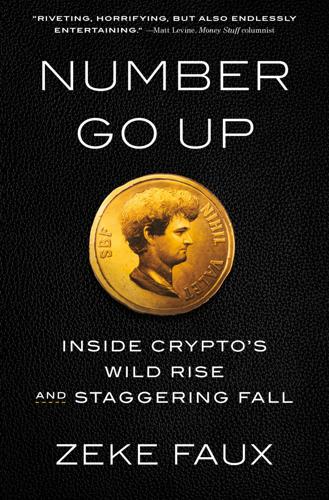
Number Go Up: Inside Crypto's Wild Rise and Staggering Fall
by
Zeke Faux
Published 11 Sep 2023
Silk Road was Bitcoin’s first commercial application. Drug consumers didn’t set up their own mining rigs before going shopping on the dark web. They bought Bitcoins for cash on rudimentary exchanges. The demand started driving up the price. Bitcoin was so tied to Silk Road that when the site’s founder, Ross Ulbricht, was busted in October 2013, the price crashed. But a month later, Bitcoin’s price mysteriously increased tenfold, past $1,000. Mentions of Bitcoin millionaires started appearing in the news. The Wall Street establishment called it an unsustainable bubble, giving Bitcoin still more attention. Years later, researchers would find that the spike was the result of fake trades and price manipulation, but by then the idea of getting rich on Bitcoin had entered the popular imagination.
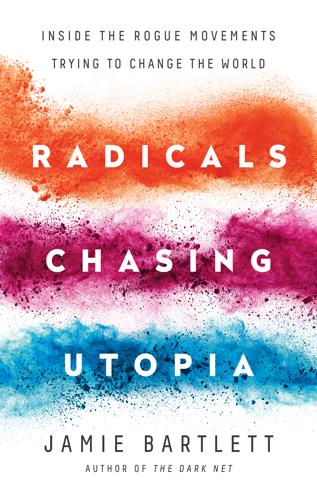
Radicals Chasing Utopia: Inside the Rogue Movements Trying to Change the World
by
Jamie Bartlett
Published 12 Jun 2017
Paul Bradbury from the website Total Croatia News, sitting next to me all morning, said it was one of the most peculiar things he’d ever seen and wrote an article about it all called ‘Liberland conference: Reflections on a weekend in Alice in LiberWonderLand’. 13. He gives a lot of money to various libertarian causes, including offering US senator Bernie Sanders $100,000 to debate with him about socialism versus libertarianism. More controversially he donates money to a fund set up to help Ross Ulbricht, the man who founded the notorious darknet market, the Silk Road. 14. Back in the 1990s Timothy May imagined a world where virtual regions called ‘cybersteads’, protected by powerful encryption, could be created online, leaving individuals free to make consensual economic arrangements among themselves with no state at all—a world of online communities of interest interacting directly with each other, as the ‘meat world’ of mediocre, inefficient governments watched helplessly on the side.
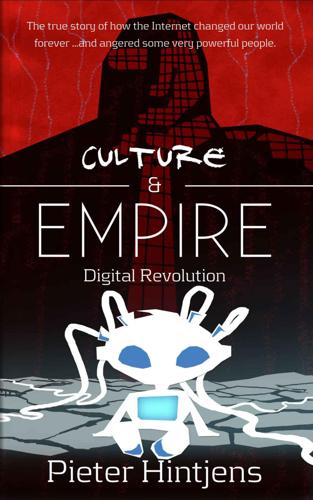
Culture & Empire: Digital Revolution
by
Pieter Hintjens
Published 11 Mar 2013
As long as it existed, people would trust and invest in Tor, and work around any tactics the authorities invent. Taking down Silk Road would hurt Tor's growth and future badly. In theory, a Deep website like Silk Road cannot be found and shut down by the authorities. However in October 2013, the FBI arrested its operator, Ross Ulbricht, aka "Dread Pirate Roberts", and seized the Silk Road servers. The first death of Silk Road -- for I'm sure it will be resurrected -- and subsequent worldwide prosecution of dealers who used it puts a large question mark over Tor. The FBI's explanations of how they tracked Ulbricht through his clumsy on-line activity smells of "parallel construction", aka "intelligence laundering," and the NSA's handy set of Internet spy tools.
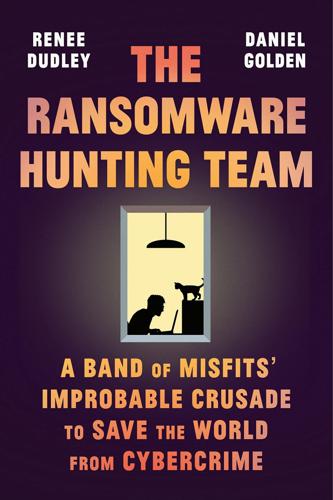
The Ransomware Hunting Team: A Band of Misfits' Improbable Crusade to Save the World From Cybercrime
by
Renee Dudley
and
Daniel Golden
Published 24 Oct 2022
He led the investigation into Silk Road, the black-market bazaar where illegal goods and services were anonymously bought and sold. As part of a sprawling investigation into the dark web marketplace, law enforcement located six of Silk Road’s servers scattered across the globe and compromised the site before shutting it down in October 2013. Ross Ulbricht, of San Francisco, was later found guilty on narcotics and hacking charges for his role in creating and operating the site. He is serving two life sentences plus forty years in prison. Milan was nominated for the FBI Director’s Award for Investigative Excellence; he became a Cyber Division unit chief, advising on technology strategy.
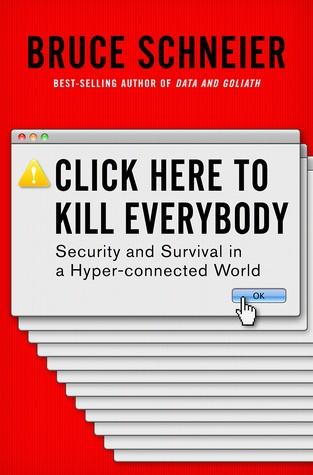
Click Here to Kill Everybody: Security and Survival in a Hyper-Connected World
by
Bruce Schneier
Published 3 Sep 2018
There might be legal hurdles—law enforcement might have to get a warrant, or might be stymied by jurisdictional issues because the information is in another country—but there are no technical hurdles. Sometimes, attribution is difficult but still possible. Even people who deliberately take pains to hide their identity find that they slip up. Ross Ulbricht was “Dread Pirate Roberts,” the American man behind the Silk Road e-commerce site for illegal goods and services. He was found by a dogged FBI agent who pieced together a years-old chat room post, an old e-mail address, and a chance interview with FBI agents investigating something else. Pedophiles have been arrested after being identified from background details in photos: a camping spot in Minnesota, a blurry logo on a sweatshirt, or a package of potato chips.
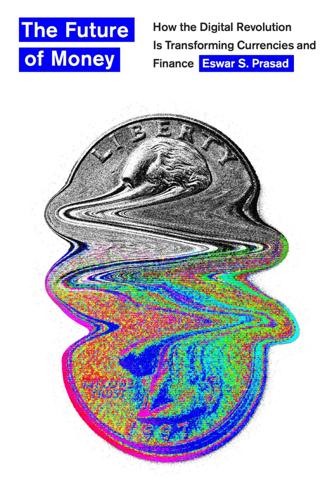
The Future of Money: How the Digital Revolution Is Transforming Currencies and Finance
by
Eswar S. Prasad
Published 27 Sep 2021
Then again, with the price of Bitcoin where it is in May 2021, as I put finishing touches to the book, perhaps my time would have been better spent in the past few years acquiring some bitcoin rather than laboring on this book. The Dark Side of Bitcoin In 2011, Dread Pirate Roberts, the digital pseudonym of a Texan named Ross Ulbricht, set up an online marketplace called the Silk Road. Ulbricht was a technology buff and a self-proclaimed Libertarian. His LinkedIn profile declared his intention to use “economic theory as a means to abolish the use of coercion and agression [sic] amongst mankind” and to build an “economic simulation” that would let people see what it was like to live in a world without the “systemic use of force.”
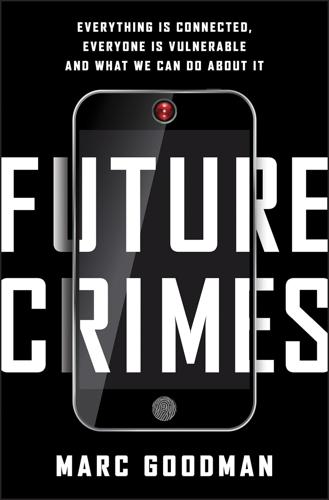
Future Crimes: Everything Is Connected, Everyone Is Vulnerable and What We Can Do About It
by
Marc Goodman
Published 24 Feb 2015
The Feds obtained the cooperation of all those who were to be “whacked” and took staged photographs of the alleged victims covered in fake blood and wearing the ashen face makeup of a dead body that they forwarded to DPR as the proof of killings he demanded. Who was this criminal mastermind behind Silk Road? Not at all whom you would expect. Ross Ulbricht was the kind of kid any parent would be proud of, an Eagle Scout from Austin, Texas, who had earned a master’s degree in science and engineering. In grad school, Ulbricht eventually lost interest in science in favor of a new passion for libertarianism. He wrote on his LinkedIn profile that he now wished to “use economic theory to abolish the widespread and systemic use of force by institutions and government against mankind.”